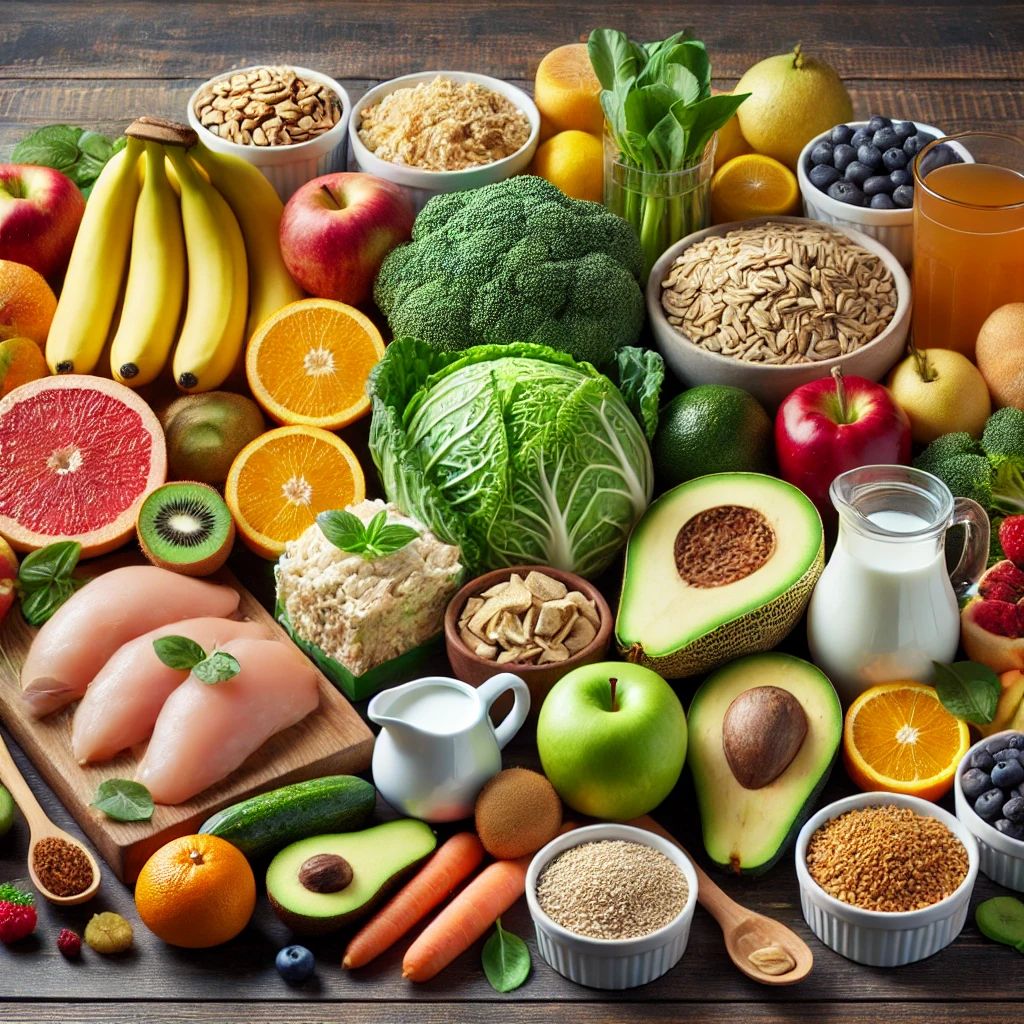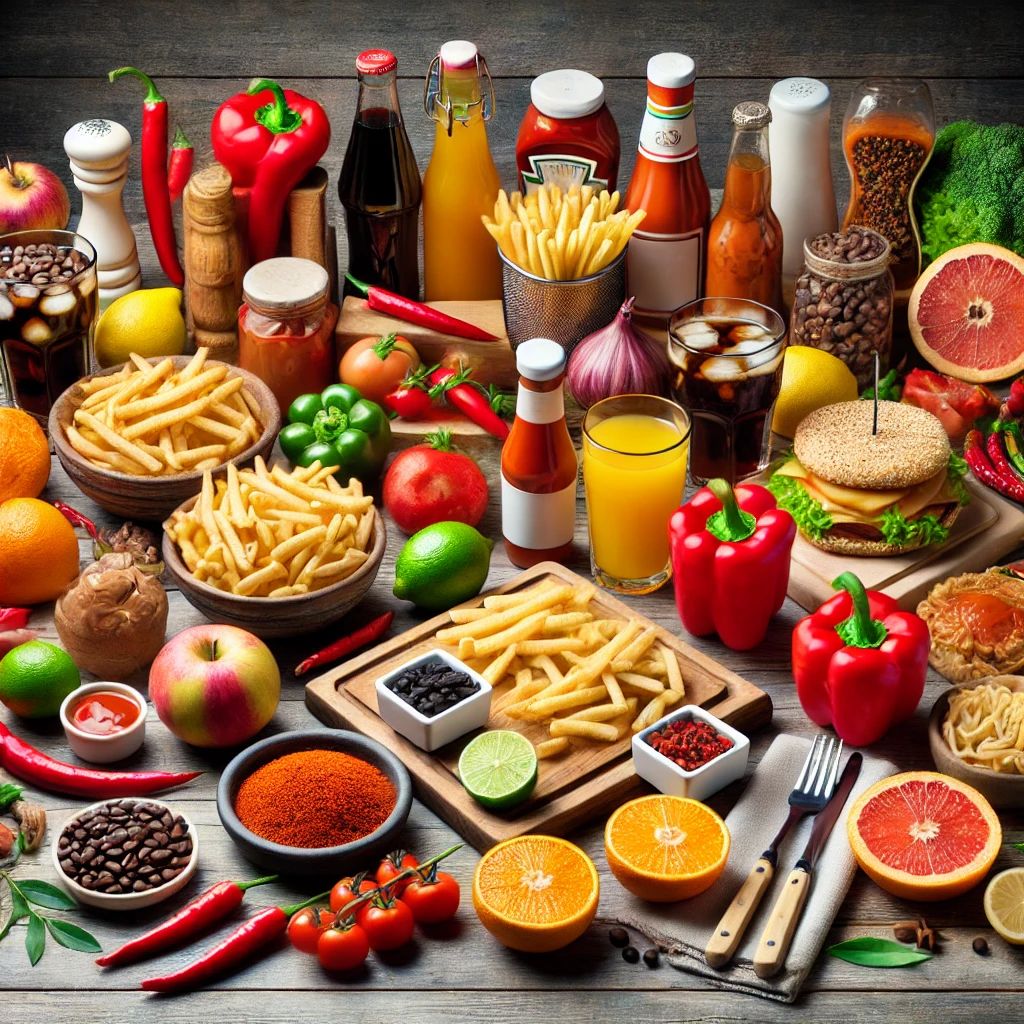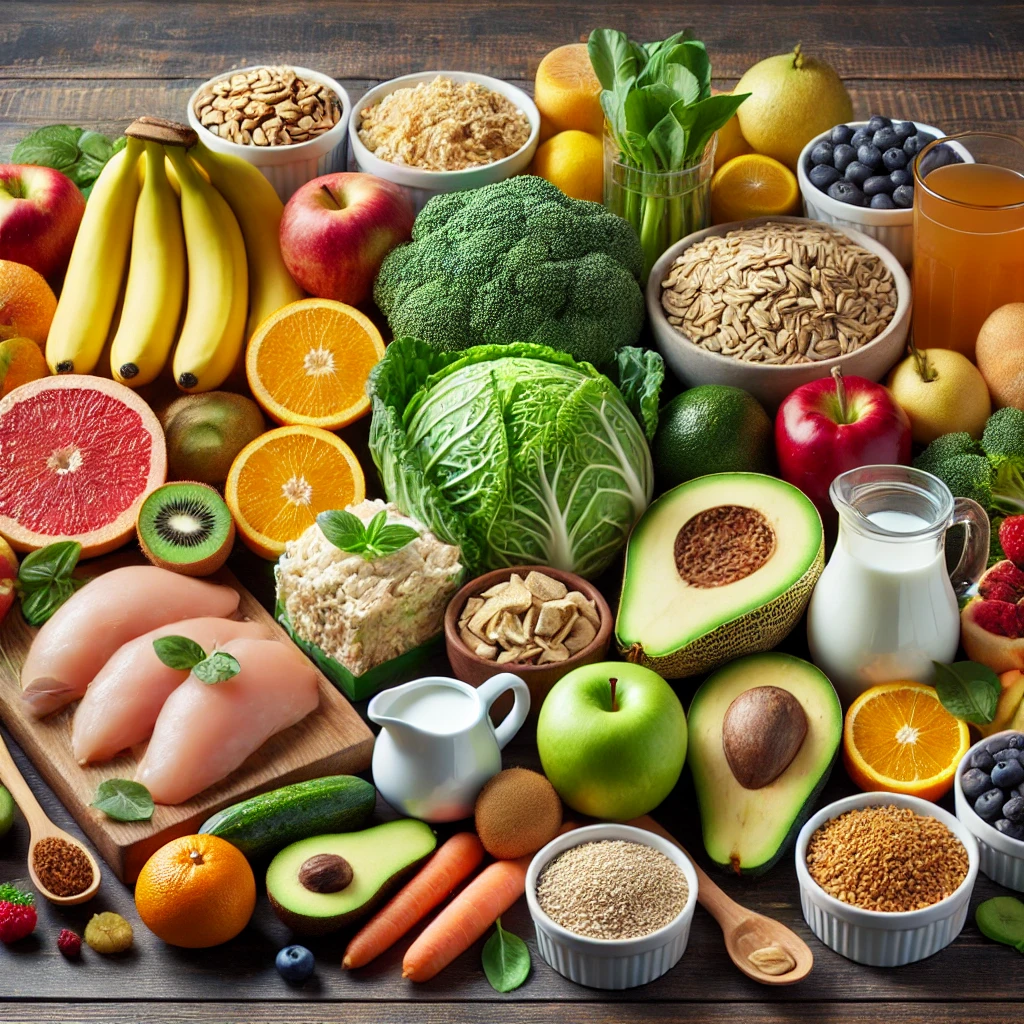Gastroesophageal reflux disease (GERD) is a chronic condition in which stomach acid frequently flows back into the esophagus, causing discomfort, heartburn, and potential damage to the esophageal lining. While medications can help manage symptoms, diet plays a crucial role in controlling acid production and preventing reflux. By following a diet tailored to GERD, which emphasizes foods that reduce acidity and avoids spicy, fatty, and trigger foods, individuals can manage symptoms and improve their quality of life. In this guide, we will explore a diet for GERD, including food recommendations, what to avoid, and practical tips for reducing acid reflux.
What Is GERD and How Does Diet Affect It?
GERD occurs when the lower esophageal sphincter (LES), a muscle that separates the stomach from the esophagus, becomes weak or relaxes inappropriately, allowing stomach acid to flow back into the esophagus. This acid reflux can cause heartburn, regurgitation, and irritation of the esophageal lining. Over time, untreated GERD can lead to complications like esophagitis, ulcers, and even an increased risk of esophageal cancer.
Diet plays a significant role in managing GERD because certain foods can increase stomach acid production or relax the LES, triggering reflux. Conversely, other foods can help reduce acid production and soothe the digestive system.
According to Cleveland Clinic, adjusting your diet to avoid acid-triggering foods and focusing on those that are easier on the stomach can significantly reduce GERD symptoms.
Foods to Include in a GERD-Friendly Diet
A GERD-friendly diet focuses on foods that are low in fat, non-acidic, and less likely to trigger reflux. Here are some foods that are typically well-tolerated by individuals with GERD:
Non-Citrus Fruits: Bananas, apples, pears, and melons are gentle on the stomach and low in acidity. They help neutralize stomach acid and can prevent heartburn.
Vegetables: Leafy greens (spinach, kale), broccoli, carrots, green beans, and cucumbers are low-acid vegetables that do not contribute to acid reflux. These vegetables are also rich in nutrients and promote digestive health.
Oats and Whole Grains: Oatmeal, whole wheat bread, brown rice, and quinoa are excellent sources of fiber that help regulate digestion and reduce the occurrence of reflux. These whole grains absorb stomach acid and prevent it from backing up into the esophagus.
Lean Proteins: Chicken, turkey, fish, and plant-based proteins like tofu and legumes are low in fat and less likely to trigger reflux. Choose grilled, baked, or boiled options to keep meals light.
Low-Fat Dairy: Non-fat or low-fat versions of milk, yogurt, and cheese are less likely to cause reflux compared to full-fat dairy products. Greek yogurt, in particular, may soothe the stomach and support digestion due to its probiotics.
Ginger: A natural anti-inflammatory, ginger is known to help soothe the digestive system and reduce symptoms of acid reflux. It can be consumed as a tea or added to meals for flavor.
Herbal Teas: Chamomile, ginger, and licorice root tea are soothing and can help reduce acid production. Avoid caffeinated teas and opt for herbal options to prevent reflux.

Foods to Avoid on a GERD Diet
Certain foods can worsen GERD symptoms by increasing stomach acid production or relaxing the LES. These foods should be limited or avoided altogether:
Spicy Foods: Hot peppers, spicy sauces, and dishes with high levels of chili or cayenne can irritate the esophagus and trigger acid reflux.
Fried and Fatty Foods: High-fat foods, including fried items, butter, full-fat dairy, and fatty cuts of meat, can slow digestion and increase stomach acid, making reflux more likely.
Citrus Fruits: Oranges, grapefruits, lemons, and limes are highly acidic and can trigger heartburn. Opt for non-citrus fruits like bananas and melons instead.
Tomato-Based Products: Tomato sauce, ketchup, salsa, and other tomato-based products are highly acidic and commonly trigger reflux. Avoid these or choose low-acid alternatives when possible.
Caffeine and Carbonated Drinks: Coffee, tea, soda, and energy drinks can relax the LES and increase stomach acid production, contributing to reflux. Switch to herbal teas and water instead.
Chocolate: Chocolate contains both caffeine and fat, which can relax the LES and worsen GERD symptoms. Dark chocolate, while lower in fat than milk chocolate, can still be problematic for those with reflux.
Alcohol: Alcohol, especially red wine, can irritate the esophagus and relax the LES, leading to reflux. Limit or avoid alcohol to prevent worsening of symptoms.

Practical Tips for Reducing Acid Reflux Through Diet
In addition to choosing the right foods, certain habits can help minimize reflux and support digestive health:
Eat Smaller, More Frequent Meals: Large meals can put pressure on the stomach and increase the likelihood of acid reflux. Instead, opt for smaller meals throughout the day to reduce this pressure.
Avoid Lying Down After Meals: Wait at least two to three hours after eating before lying down. This allows food to properly digest and reduces the chances of acid reflux.
Elevate the Head of Your Bed: Sleeping with your upper body elevated can help prevent stomach acid from flowing back into the esophagus during the night. Using a wedge pillow or elevating the bed can make a significant difference.
Chew Food Slowly: Eating too quickly can contribute to indigestion and reflux. Take your time to thoroughly chew and enjoy your food.
Avoid Tight Clothing: Tight-fitting clothes can put pressure on your abdomen and increase reflux symptoms. Choose loose-fitting garments to allow for proper digestion.
Sample Meal Plan for GERD
Here’s a sample meal plan that incorporates GERD-friendly foods and helps manage acid reflux:
Breakfast: Oatmeal with sliced bananas and a sprinkle of flaxseeds.
Lunch: Grilled chicken salad with cucumbers, carrots, and a light olive oil dressing.
Snack: Apple slices with a handful of almonds.
Dinner: Baked fish with quinoa and steamed broccoli.
Dessert: A small bowl of non-fat Greek yogurt with fresh berries.
A GERD-friendly diet can significantly reduce symptoms of acid reflux and improve overall digestive health. By focusing on non-acidic, low-fat foods and avoiding trigger foods like spicy, fatty, and acidic items, individuals can manage GERD effectively. For more information on foods that reduce reflux, visit Cleveland Clinic.
For more health tips, explore our Health Journal and Nutrition.
1.Suggested Breakfast
2.Suggested Lunch
3.Suggested Dinner
Disclaimer: The information provided about this dietary regime is for educational and informational purposes only. It is not intended to replace professional medical advice, diagnosis, or treatment. While special dietary regimes may offer benefits for certain individuals, individual results may vary. Always consult a qualified healthcare professional or dietitian before starting any diet to ensure it is suitable for your specific health needs and conditions.
